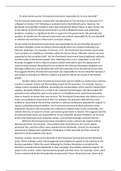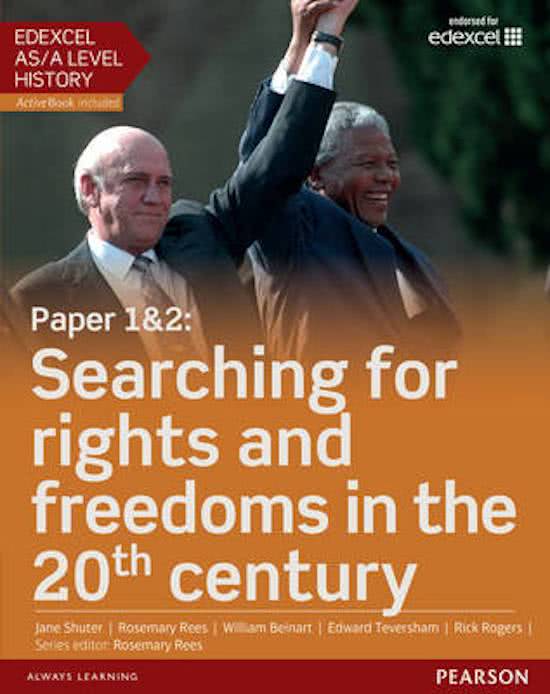'To what extent was the Provisional Government responsible for its own downfall?'
The Provisional Government, formed after the abdication of Tsar Nicholas II in February 1917,
collapsed in October 1017 following a revolution led by the Bolshevik party. However, the
Bolsheviks received little resistance when they stormed the Winter Palace to take control, due
to the failures of the Provisional Government, as well as Bolshevik tactics and underlying
problems, resulting in a significant decline in support for the government. This provokes the
question of whether the Provisional Government was entirely responsible for its own downfall,
or whether external factors influenced its eventual collapse.
On one hand, the Provisional Government was responsible for its own downfall, because it
provoked inevitable unrest by failing to democratically elect new ministers following Tsar
Nicholas' abdication. For example, in February 1917, the Provisional Government was formed
from members of a rebellious committee within the former Duma. Milyukov claimed 'we were
appointed by the revolution itself', but the Provisional Government lacked legitimate authority
and the loyalty of the Russian people. Also, following Prince Lvov's resignation in July 1917,
Kerensky struggled to form a liberal-socialist coalition (intended to give the appearance of
national unity) because the political forces united by the February Revolution disagreed over
ideological differences and dissatisfaction with the leadership of the Provisional Government.
This suggests that the Provisional Government was responsible for its own downfall, because it
was unable to maintain an effective coalition and failed to attract the loyalty of the Russian
people.
Another failure of the Provisional Government was its inability to resolve issues with the
country's transport system and the hoarding of grain by the peasantry. For example, Russia's
railway system remained inefficient, preventing the transportation of the country's limited food
supplies. Alongside inflation (as a result of the ongoing food shortages), this discouraged the
peasantry from selling their grain to the state for an insufficient price, and instead provoked
them to hoard it to ensure their own survival. The Provisional Government also failed to act on
issues surrounding the ownership of land. For example, the peasantry believed they were
entitled to ownership of the land they worked on, whereas landowners appealed for support to
repress a potential peasant rebellion. The Provisional Government observed these events
impotently, because it did not possess the authority to impose order on the countryside, and
claimed that was an issue for a future, permanent government to resolve. This suggests that the
Provisional Government was responsible for its own downfall, because it failed to act on some
of the most important issues in Russian society, such as food shortages and land reforms.
While the Provisional Government intended to create a democratic regime entirely
disassociated from Tsar Nicholas’, the problems they inherited from the Tsarist regime
prevented this, and their efforts were exploited by the Bolsheviks. Overall, the Provisional
Government’s failings had a significant contribution to their downfall, but they cannot be
blamed for all the problems they faced.
However, another reason for the downfall of the Provisional Government was the Bolshevik
party, whose strategic tactics and propaganda were designed to appeal to the majority of the
Russian population. While the events following the October Revolution contradicted the
intentions presented by the Bolsheviks in their campaign, they initially claimed to support 'all
power to the soviets', which represented the people and their views. For example, Lenin's April
Theses insisted that Bolshevik leadership would provide 'Peace, Bread and Land', referring to





